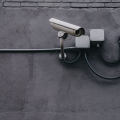Every day a delinquent account lingers, your business loses more than just money—it loses momentum. What starts as a few missed payments can quietly escalate into a full-blown cash flow crisis.
Many business owners don’t realize how fragile their financial pipeline is until it’s already clogged. In today’s economy, delayed receivables aren’t just inconvenient—they’re dangerous. That’s where experienced legal support, like Andreu, Palma, Lavin & Solis PLLC, becomes a critical ally in recovering what you’re owed before it’s too late.
Unpaid debts can suffocate operations, delay growth plans, and even jeopardize payroll. If delinquent accounts aren’t confronted quickly and decisively, your business may end up funding someone else’s instability.
Read on to discover why timely action on delinquent accounts isn’t just smart—it’s essential. We’ll break down the hidden costs of inaction, the impact on your cash flow, and how expert guidance can help you regain control before it’s too late.
Table of Contents
The Hidden Danger of Delinquent Accounts

When customers or clients fall behind on payments, it’s more than just a temporary inconvenience—it’s a slow bleed on your financial stability. Many businesses try accommodating late payers, hoping good faith will lead to an eventual resolution. However, without a clear strategy to resolve delinquent accounts, these delays compound over time, disrupting cash flow and operational efficiency.
Delayed receivables are especially dangerous for small and mid-sized businesses that rely on predictable income to cover expenses like inventory, salaries, and rent. According to a U.S. Bank study, 82% of business failures are due to poor cash flow management, and unresolved debts are often a core culprit.
Why Timely Action Matters
Time is your most valuable asset when dealing with delinquent accounts. The longer a debt remains unpaid, the less likely it is to be collected. Industry data shows that accounts over 90 days past due have less than a 70% chance of full recovery.
Here’s what happens when businesses wait too long:
- Cash reserves shrink due to delayed incoming funds.
- Credit lines are stretched, increasing interest costs.
- Vendor relationships suffer as payments to suppliers get delayed.
- Growth plans stall due to uncertainty and limited working capital.
When these problems accumulate, even a thriving business can find itself in a liquidity crunch.
Legal Leverage and Debt Collection
Recovering delinquent accounts isn’t just about follow-up emails or friendly reminders. Sometimes, legal enforcement is necessary to protect your business interests. This is where understanding the legal landscape becomes crucial.
Under the Fair Debt Collection Practices Act (FDCPA), businesses working with third-party collectors must follow specific guidelines to ensure compliance and avoid liability. For example, collectors must avoid deceptive practices and may not contact debtors at unusual hours. While the FDCPA is designed to protect consumers, commercial debt collection follows a different path, often governed by state-specific contract law and the Uniform Commercial Code (UCC).
If a debtor refuses to pay despite multiple notices, legal tools such as:
- Demand letters
- Negotiated settlements
- Filing a claim in small claims or civil court
- Securing a judgment lien
…can help enforce payment. In Florida, for example, once a judgment is secured, creditors may pursue wage garnishments, bank levies, or property liens to collect the debt under Chapter 55 of the Florida Statutes.
How Delinquent Accounts Disrupt Cash Flow
Healthy cash flow is the lifeblood of any business. It fuels daily operations, pays employees, and provides the capital needed to grow. But when accounts receivable turn into long-term debt, your business becomes a bank, offering interest-free loans without consent.
Here’s how unresolved debts sabotage cash flow:
- Revenue on paper isn’t real cash—it can’t pay bills.
- Your budget becomes unreliable, leading to miscalculations.
- Emergency expenses become harder to cover, forcing reliance on credit.
Even one major delinquent account can ripple through your balance sheet and impact your business’s agility.
Proactive Strategies to Prevent and Resolve Delinquent Accounts
You can’t eliminate risk entirely, but you can build systems that minimize it. Consider implementing these best practices:
Conduct Credit Checks Before Extending Credit
Assessing the creditworthiness of new clients or large accounts helps you avoid high-risk customers. This early screening reduces the chance of late or missed payments.
Clearly Define Payment Terms
Set transparent payment conditions in your contracts and invoices. Clear terms ensure everyone understands deadlines, penalties, and acceptable payment methods upfront.
Automate Invoice Reminders and Tracking
Use digital tools to send timely reminders and monitor due dates. Automation keeps payments on your radar and encourages prompt customer action.
Implement Late Payment Fees
Charging fees for overdue invoices creates a financial incentive for clients to pay on time. It also compensates for the costs your business incurs due to delays.
Take Prompt, Decisive Action When Needed
Don’t hesitate to escalate the issue if payments are significantly overdue. Early intervention, including legal consultation, increases the likelihood of full recovery.
The Bottom Line
Delinquent accounts are more than a bookkeeping issue—they’re a threat to your company’s financial health. Addressing them quickly, with both strategic and legal tools, helps restore balance and preserve long-term viability. In today’s competitive business environment, the ability to recover owed funds may be the difference between surviving and thriving.
























